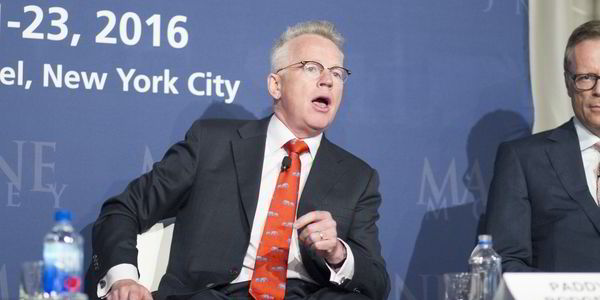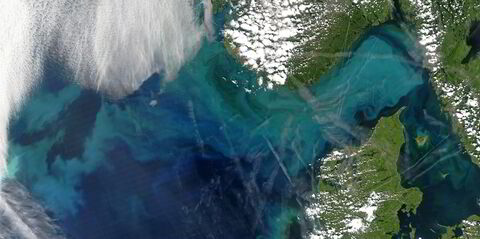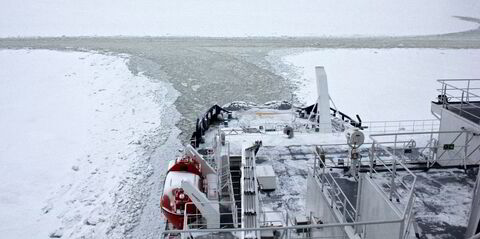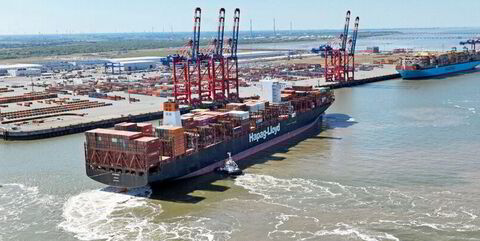The heads of three large publicly listed tanker companies see the ‘Brexit’ as a non-event operationally for their companies. There could even be some positive impacts for shipping if capital does indeed become less available for newbuildings.
In a call hosted by Deutsche Bank analyst Amit Mehrotra regarding last week’s vote in favour of the United Kingdom leaving the European Union, the chief executives of Euronav, Scorpio Tankers and Ardmore Shipping said they see no impact in trading of crude or refined products.
Increased financial market volatility may actually be a greenlight to energy traders that arbitrages may be available for moving product, lending support to tanker demand.
Mehrotra asked Paddy Rodgers how the London-based chief executive of a Brussels-based company saw the Brexit impacting shipping. Rodgers acknowledges the short-term distress in financial markets, but he says the problems of one country should not have much impact on a global business, whether trading crude oil or shipping it across seas.
“The commentariat (in London) has it that this has global implications,” Rodgers said. “The reality is that it is Little England seeing the last days of its impact on the world economy.”
The devaluation of the British sterling, which has fallen 12% versus the US dollar since the vote was cast, could even provide some small tailwind for Euronav in terms of its pound-denominated costs being lower.
Rodgers says banks, naturally, will have the hardest time dealing with England’s split with the EU. The EU regime allows a London-based bank to raise and deploy capital across the continent. But the potential of having to establish new offices in each country raises their costs, and the cost of capital for borrowers.
“It’s going to be much more costly to use capital across all the branches you service, Rodgers said. “It will put added costs on the customer and constrain the capital available.”
But that higher cost of capital is a long-term positive for the shipping industry, says Scorpio chief executive Robert Bugbee, as it will slow the flow of new ship orders.
He posits any unfunded newbuildings are likely greater candidates for cancellation now and banks may actually become tougher on non-performing loans made to the many money-losing shipping companies.
“It is fundamentally positive as you’ve made it harder to order vessels,” Bugbee said. “You’ve put a further crimp on available capital to those under financial pressure.”
On the flip side, he says the decrease in interest rates should make the cost of capital cheaper for cash-flow positive shipping companies.
“We’re finding better financing offered from banks,” Bugbee said. “There is more availability for better capitalised companies.”
Ardmore chief executive Anthony Gurnee said of last week’s vote that it was “a slight positive, but mostly neutral” for shipping. The volatility in financial markets are not likely to change world oil consumption.
Rather, the volatility in both currencies and commodities is creating more arbitrage opportunities for traders, which is fundamentally positive for tanker demand.
Indeed, the Baltic Exchange’ assessment for earnings on long-range 1 (LR1) tankers and medium-range (MR) tankers from the Middle East Gulf to Asia has jumped 20% since the Brexit vote.
“Traders like volatility,” Gurnee said. When markets are volatile, “they trade ships in a certain way that increases tonne-mile demand.”
Earnings on other MR routes have been mixed. The Baltic’s assessment on MRs sailing from Europe to the US East Coast rose 10% as the sterling’s devaluation makes UK refinery output less expensive. But earnings on the US Gulf-to-Europe route fell as the dollar’s rise versus the pound and the Euro makes exports more expensive.
“The only thing that has changed is the sterling exchange rate, and that might impact some trade flows,” Gurnee said.
Scorpio’s Bubgee say falling oil prices, which have dropped 10% since the Brexit, and the return of many refiners from summer turnaround may indeed help tanker market.
“This definitely increases the chances of rates snapping back for the UK to US East Coast route,” Bugbee said. “When the LR market moves up 20% to 25%, maybe that is a striking point for the trader and arb guys.”
Ardmore’s Gurnee agreed with Rodgers that trade will not see any major impact from the vote as the “UK might not have as much of a global footprint as they would like to believe.”
However, as the chief executive of a company with operations based in Ireland, he does see the potential for the UK to come apart. He said the devaluation of the pound could hurt Ireland’s exporters and the Brexit heightens risk over what will happen with Northern Ireland.
On the plus side, Ireland may be an attractive locale for shipping companies as it remains in the EU. But the country remains dismayed over England’s move.
“Ireland has been handed a raw deal yet again,” Gurnee said. “The silver lining is that foreign direct investment into Ireland might accelerate and some businesses might move. But the mood here is pretty negative.”
But Rodgers doesn’t even see that much impact from the sterling’s fall, noting that the much more widely used Euro has only fallen 4% since the ‘Leave’ vote succeeded.
Rodgers says it even remains unclear how much last week’s non-binding referendum and ‘Leave’ supporters will even change the UK’s relationship with the EU, especially given the unintended consequences that have occurred over the last two days.
Rodgers says the ‘Leave’ campaign has sold its supporters a bill of goods for which it can’t deliver. Despite promises of redirecting funds from Brussels to National Health Services and creating a dead-stop on immigration, the ‘Leave’ campaign has no way of actually fulfilling those promises, which may undermine their support.
“The people who led the ‘Leave’ campaign have no idea what to do now with that vote,” Rodgers said. “As a group they are not logical.”



